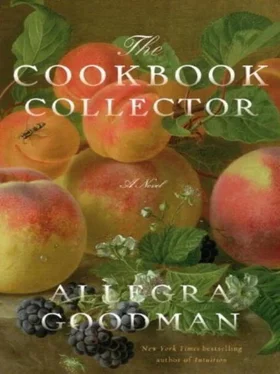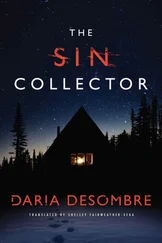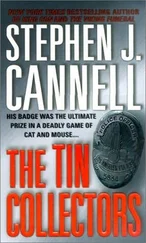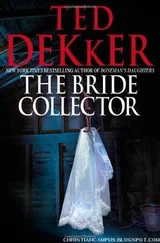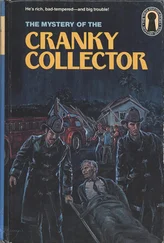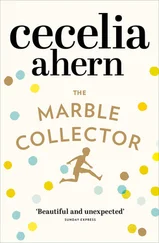“Why don’t you go out and talk to him?” Jess asked her father.
“I have nothing to say to that man,” Richard replied.
“That’s not true,” said Jess.
Her father returned to his study.
“I think you have a lot to say,” she called after him.
Upstairs, Emily sat on the floor with Heidi, contemplating the open box before her.
“What about your father’s National Geographics?” Heidi asked. “If we could move those boxes out …”
“I love those.” Jess stood in the doorway with her mouth full of apple. As soon as Heidi lifted them from the box, Jess recognized the cheerful yellow magazines—a complete set from 1915 to 1970. She’d pored over the maps and photographs, the little Afghan children in native dress, the photos of dunes and deserts, the sweep of sand in black and gray and white.
“If you want them, we can ship them all to you,” Heidi said.
“Don’t be ridiculous, Jess,” said Emily. “Pretty soon you’ll see them all online.” She looked at Heidi. “Give them to the library,” she advised. “Jess doesn’t have room.”
“I’ll make room,” Jess protested, but just then the doorbell rang and they heard Jonathan’s voice, and Richard’s welcoming him, happier than he’d been all afternoon. Of course, Jonathan was just the sort Richard loved: technical and bright and poised to conquer worlds.
Emily ran down to him. Boxes and magazines, even Rabbi Zylberfenig was forgotten. Jonathan was like the cavalry coming over the hill. You couldn’t help racing to meet him. Richard grinned. The little girls giggled, and Heidi grew girlish herself, laughing when he told her to send students his way.
“We’ll lose a generation of academics if everyone goes to work for you at ISIS,” she said.
Everyone laughed at Jonathan’s response: “Well, that’s okay.”
Even Jess, who liked him least, felt Jonathan’s extraordinary pull. You wanted to please him, or at least stand back and watch. What was it about him? His sheer energy. His masculinity. He was such a guy: square-shouldered, forthright. He had served in the Marines before college, and there was something military about him still, his hair cropped short, his feet-apart, stand-and-deliver attitude even in conversation. He had the devil in him too, a take-no-prisoners smile. He adored Emily, and when they were together his good looks were touched by humility, his blue eyes softened. When he took her hand, his thumb stroked hers yearningly.
At the barbecue where they’d met, his first words to Emily had been, “I have a huge crush on you.”
She’d burst out laughing. Surrounded by men at work, she was used to unspoken admiration, passive aggression, sometimes inappropriate advances. Not this mix of audacity and humor.
He’d added, “I like your company too.”
“Was that a pun, or did you mean Veritech?”
He’d shaken his head. “I’ve never made a pun in my life!”
“Not even unintentionally?”
“I guess that was my first. I was talking about Veritech.”
“What do you like about it?”
“Your new indexing system, your partners, your client list. You guys are so cool. You’re ubiquitous.” He said the word with reverence. “You’re doing everything I want to do.”
After an hour, which felt like three, and a snack of Goldfish crackers in the kitchen with the kids, she and Jonathan made their escape. For a moment in the driveway, Jonathan’s Datsun wouldn’t start, and Emily began to fret, and Jonathan laughed at her, and when the old car started at last, he drew her toward him and kissed her while the engine idled.
“Just wait,” said Jonathan as they drove off. By which he meant, “Wait ’til we get to my place. Wait ’til I have you all alone. Wait ’til this old wreck becomes a yellow Lamborghini.” Unlike Emily, Jonathan had no trouble envisioning the toys he’d buy, and the fun he’d have. He knew precisely the canary yellow of his future car, its huge motor and bulbous lights, its doors like wings.
In the meantime, the engine sounded hoarse, and traffic slowed down on the pike. When they finally got to Cambridge, there wasn’t time to stop at Jonathan’s apartment before dinner with their friends Orion and Molly.
“Let’s cancel,” Jonathan said.
“We can’t just stand them up.”
“Why not? I want to,” Jonathan protested, his expression frank and boyish, softening his words. “I see Orion every day.”
“But I don’t,” said Emily. “And we never see Molly.”
“Nobody does,” Jonathan said. Molly was an intern at Beth Israel Deaconess.
“Then this is a rare opportunity.” Emily was not above teasing him a little. “Not to be missed.”
After looping several times through one-way streets, they parked far from the restaurant, and ended up rushing through Harvard Square on foot. Emily always forgot how cold it got. Her shearling jacket wasn’t nearly warm enough, and she was shivering, while Jonathan didn’t need a coat, only a sweater, and he gave Emily his knit hat, a gesture both chivalrous and clumsy, as he pulled it down too hard, covering her eyes.
They met Orion and Molly on Brattle Street, and when the four of them entered Casablanca, the sudden warmth fogged Emily’s glasses. As she took them off and wiped them, she saw Molly do the same, and the two smiled in solidarity, acquaintances searching for something in common. Orion was the one Emily knew well. He had been Emily’s childhood friend when, for several summers, they attended CTY, the Center for Talented Youth at Johns Hopkins. At eleven, twelve, and thirteen, they took courses in physics and advanced geometry along with other children selected nationwide. Emily had studied Greek, and Orion took astronomy. Renaissance children, they lived in dorms with other earnest middle-schoolers blowing through problem sets, practicing violin, gathering several times a week for camp games designated by their counselors as “mandatory fun.”
At CTY, Orion had been Emily’s first sweetheart, the first boy she walked with hand in hand; and one summer night, her first kiss. They had been standing close, studying each other, a small blond Orion and a slightly taller Emily, each wondering what the other was thinking, and each afraid to ask. They both held still. The moment was delicious, almost unbearable. Emily knew she had to do something. She took off her glasses and held them open at her side. His lips touched hers. So this is kissing, she thought. She couldn’t taste anything. It wasn’t that kind of kiss. It was the kind that hung in the air, beautiful and abstract, like a theorem to contemplate. The moment afterward was lovely, much sweeter than the kiss itself. They could breathe again.
They corresponded during the school year, mailing handwritten letters—Orion’s scrawled on notebook paper, Emily’s printed on blue stationery patterned with white clouds. She must have written three letters to his one, and she remembered pointing this out on the phone. She’d been tearful, and he’d grown quiet, and finally he told her that his parents were splitting up. Then she understood, and the understanding was pure Emily—unselfish insight. She realized that corresponding was too much for him, and pining for each other was a little much as well. “Maybe we should stop,” she whispered. “We’re only thirteen.”
By high school, their romance was well behind them, and in college they settled into occasional e-mail exchanges. He went to graduate school at MIT, and one summer when Emily came east to see her father, Orion introduced her to Jonathan. So she had Orion to thank for that. Orion who was now so tall—much taller than she. He was lanky, broad-shouldered, long-limbed, and although Molly had dressed up in a black wool dress and high-heeled black boots, Orion wore jeans and a sweater with holes at the elbows. Molly was short and round-faced; she had an eager look about her, while Orion always had a faraway look in his gray eyes, as though he’d rather be fishing. He wore his hair long in a ponytail thick as a horse’s mane. He had something of the wild horse about him.
Читать дальше
